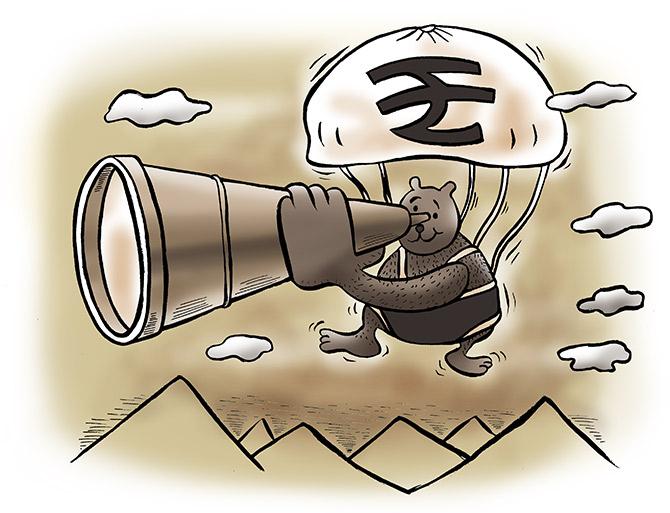'Investors need to understand that these schemes may not do well in the market that is in a bull run, but quality stocks would protect the downside.'
Tinesh Bhasin reports.

A few fund houses are in the process of launching quant-based schemes to remove human bias in stock-picking.
DSP Mutual Fund's DSP Quant Fund opened for subscription on May 20 and will close on June 3.
ICICI Prudential MF has filed draft offer for its quant-based scheme with the Securities and Exchange Board of India.
Quant-based schemes have a data-driven approach to stock-picking.
They create a model on various parameters that automatically selects stocks.
The idea is to free stock-picking from human intervention.
The fund manager usually focuses on the robustness of the model.
Each fund house develops its model, based on the parameters it thinks is best for selecting quality stocks.
The criteria for picking stocks is based on fundamentals such as earnings, profit growth, debt, and so on.
The focus of DSP MF's scheme is first on eliminating companies that can bring down returns in the long term.
"Out of the universe of 200 companies in our benchmark BSE 200, we weed out companies that can potentially bring down returns in the long term.
"Simply put, these are usually companies with corporate governance issues, those that follow bad accounting principles, and firms whose management is not shareholder-friendly," says Kalpen Parekh, president, DSP Investment Managers.
After eliminating 100 companies, the remaining 100 are ranked, based on fundamentals, and, of these, 40 to 50 stocks are added to the portfolio.
The scheme is rebalanced once in six months.
MF analysts say there is space for rule-based schemes.
"With large-cap MFs not being able to beat their benchmark in the past few years, there is need for low-cost schemes with passive investment strategy," says Vidya Bala, head, MF research, FundsIndia.
She points out that exchange-traded funds based on the National Stock Exchange's NV20 index have done well.
The stocks in the NV20 index are selected out of the Nifty50 companies that reflect the behaviour and performance of a diversified portfolio of value companies.
Among large-cap MFs, funds based on NV20 index have the highest one-year return of 14 per cent.

MFs based on quant models have not done well in the past, as India is still mostly an active fund managers's market.
The country's stock markets are not as efficient as those in the developed markets.
But since Sebi has asked MFs to benchmark their fund returns to total return index, the majority of the large-cap schemes have under-performed their benchmark.
The quant-based funds of DSP MF and ICICI Prudential MF look at BSE 200 stocks, which also comprise mid-cap stocks, where a fund manager can still have a better chance at beating rule-based stock-picking models.
MF analysts say the fundamental parameters that fund houses usually use would capture large-caps as well as mid-cap stocks equally.
These funds are suitable for savvy investors with an investment portfolio, say analysts.
They can replace a portion of their large-cap funds with a mix of index-based ETFs and quant funds.
"Investors need to understand that these schemes may not do well in the market that is in a bull run, but quality stocks would protect the downside," says Kaustubh Belapurkar, director-fund research, Morningstar India.
"Usually, investors are asked to stay away from new fund offers, as there are similar schemes with a track record," adds Belapurkar.
"There are not many quant fund schemes out there, and experienced investors can allocate about 5 per cent of an equity portfolio to these funds."
Illustration: Uttam Ghosh/Rediff.com











